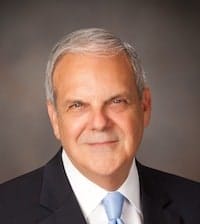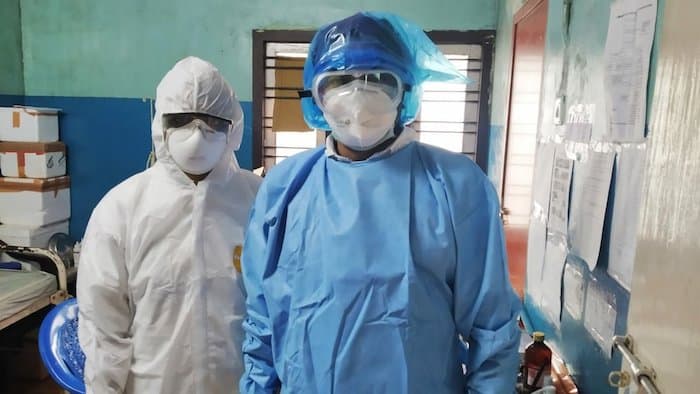
By Nick Jacobs
In an article titled “Disasters, Capitalism, and COVID-19” by Vincennes Adams, Naomi Klein describes disaster capitalism as a form of economics that responds to disasters in ways that promote “free-market, for-profit, corporate solutions.” She says, “It may succeed in creating company profits but ultimately fails in terms of democracy, fairness, and justice.”
She describes the Hurricane Katrina disaster as being caused, in part, by the privatization of the Army Corps of Engineers and the oil industry’s erosion of protective wetlands. The highest death tolls, financial, and material losses affected the most vulnerable social and economic groups. During the recovery, private sector contractors rewarded themselves richly while ordinary people were left to make it on their own.
I’m watching this same phenomenon unfold today with Community Health Centers across Pennsylvania as they try to get the needed Personal Protection Equipment. Wealthier health systems and States can buy the large quantities required to meet the corporate criteria for these purchases while the marginalized get further marginalized.
Why aren’t the flu, viral colds, heart disease, cancer and diabetes deaths considered disasters? It’s because of the immediacy of death. COVID-19 will possibly make it to the unique list of being the third largest killer in the United States by the end of April.
The author suggests: “Imagine how U.S. health care institutions and government responses might change if cancer, heart disease, and diabetes were framed in the same language and sense of urgency as COVID-19.”
According to the author, It’s because these diseases are “an outcome of allowing corporations to sell deadly, heart-disease producing foods and barely regulating cancer-causing chemicals at all.” This country has always had a very hard time determining the differences between the value of corporate profits vs.human life. The article references a “pandemic industrial complex,” which, like the military industrial complex uses the disaster to form a framework in which government and financial resources are mobilized to leverage free market investing in the next big outbreak.
Global warming has contributed to fires, floods, hurricanes, and now unique viral mutations. The new prognosticators of these disasters are computational and zoonosis biologists, epidemiologists and geneticists. What they have been able to point out to us is not necessarily the coming disasters as much as the pre-existing vulnerabilities, and they’ve been able to do it in ways that also predict capitalistic disaster as well.
If those who are immunocompromised with heart disease, cancer, and diabetes are the primary targets of this disease, why not say they are the main reason it’s so deadly. If our population were more health conscious, had better access to health insurance, and were less influenced by the free capitalism that continuously promotes products that are detrimental to our health, a disaster already created by a capitalist free market, would this be a different set of analytics?
We have produced so much vulnerability in the U.S. through our current circumstances that analyzing this disaster without properly taking into consideration our pre-existing health care crisis is, in itself, a crisis. Would we scrutinize this differently if we looked at our current system more holistically?We have huge disparities in both our healthcare system and our public health system. We have been preparing for another pandemic since 1918, yet we were woefully unprepared for even the most basics of PPE, available ventilators, and ICU beds.
Is COVID-19 the disaster, or is our real United States disaster the lack of a functioning health care safety-net for our most vulnerable? That reality has set up every company, every individual as a free-market entrepreneur of health. We reject all forms of socialism until we need it–be that in the form of Social Security, unemployment benefits, or government checks to cover missed wages.
The primary question we should be considering is: can we change that future?
F. Nicholas (Nick) Jacobs, FACHE is a member of the executive committee of the Board of Regents for Southern California University of the Health Sciences. He has served as an officer of the American Board of Integrative Holistic Medicine, was a founding officer of the Academy of Integrative Health and Medicine, and served on the boards of Planetree International and the Integrative Health Policy Consortium.
Mr. Jacobs has consulted for Integrative Medical Centers at the Atlantic Health System, Hackensack University Medical Center, Parkview Health System, Cedars Sinai, the Block Center for Integrative Cancer Care, and Highlands Hospital in Pennsylvania.
Mr. Jacobs has served as President of Windber Medical Center and in senior leadership roles for Mercy Medical Center and the Conemaugh Health System. He was President and co-founder of the Windber Research Institute, a genetic research institute and bio-repository. He also founded the Clinical and Translational Genome Research Institute, a Pharmacogenomics research institute now affiliated with Southern California University.
Nick is a consultant for the United States Department of Defense Clinical Breast Care Project and was responsible for creating the Conemaugh Health Foundation, Mercy Healthcare Foundation, and the Laurel Highlands Educational Foundation.
He holds Masters Degrees in Education from the Indiana University of Pennsylvania and in Public Management-Health Systems Management from Carnegie Mellon University, has completed a certification in Health Systems Management from Harvard University, and is a fellow of the American College of Healthcare Executives. He has written two books and is a regular contributor to several publications.
Finally, Nick has spoken at conferences for the Highmark, Cigna, the American Hospital Association, American College of Healthcare Executives, National Cancer Institute, Academy of Integrative Health and Medicine, World Health Organization, World Congress on Cardiology, and the Association of Healthcare Philanthropy
A former professional trumpet player and teacher, Nick is the father of two children, has six grandchildren, and lives in Windber and Pittsburgh, PA.
F. Nicholas (Nick) Jacobs, FACHE is a member of the executive committee of the Board of Regents for Southern California University of the Health Sciences. He has served as an officer of the American Board of Integrative Holistic Medicine, was a founding officer of the Academy of Integrative Health and Medicine, and served on the boards of Planetree International and the Integrative Health Policy Consortium.
Mr. Jacobs has consulted for Integrative Medical Centers at the Atlantic Health System, Hackensack University Medical Center, Parkview Health System, Cedars Sinai, the Block Center for Integrative Cancer Care, and Highlands Hospital in Pennsylvania.
He has served as President of Windber Medical Center and in senior leadership roles for Mercy Medical Center and the Conemaugh Health System. He was President and co-founder of the Windber Research Institute, a genetic research institute and bio-repository. He also founded the Clinical and Translational Genome Research Institute, a Pharmacogenomics research institute now affiliated with Southern California University.
Nick is a consultant for the United States Department of Defense Clinical Breast Care Project and was responsible for creating the Conemaugh Health Foundation, Mercy Healthcare Foundation, and the Laurel Highlands Educational Foundation.
He holds Masters Degrees in Education from the Indiana University of Pennsylvania and in Public Management-Health Systems Management from Carnegie Mellon University, has completed a certification in Health Systems Management from Harvard University, and is a fellow of the American College of Healthcare Executives. He has written two books and is a regular contributor to several publications.
Finally, Nick has spoken at conferences for the Highmark, Cigna, the American Hospital Association, American College of Healthcare Executives, National Cancer Institute, Academy of Integrative Health and Medicine, World Health Organization, World Congress on Cardiology, and the Association of Healthcare Philanthropy
A former professional trumpet player and teacher, Nick is the father of two children, has six grandchildren, and lives in Windber and Pittsburgh, PA.








